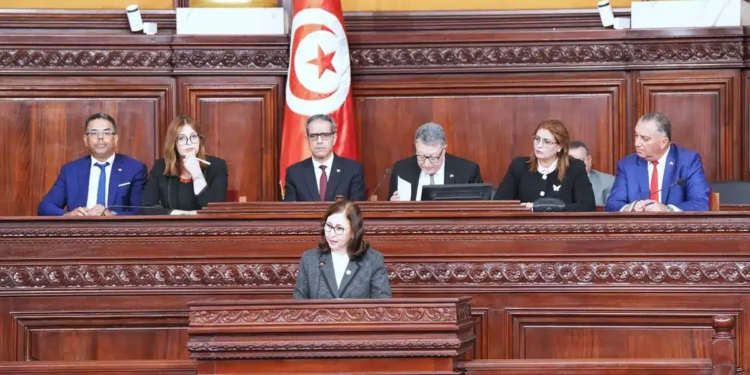The head of government, Sarra Zaafrani Zenzri, announced on Wednesday the opening of 51,878 positions in the public service for the year 2026, including 22,523 reserved for higher education graduates who have been unemployed for several years. A measure part of a broader strategy of social justice and the fight against precarious employment.
A 2026 budget focused on employment
During the joint plenary session dedicated to the presentation of the draft state budget and the 2026 economic budget, Sarra Zaafrani Zenzri affirmed that the government will prioritize the creation of stable jobs and the regularization of contract workers in education and public worksites. The budget, drawn up from the local level to the regional centers, aims, according to her, to anchor the social role of the State and to guarantee better territorial equity.
The head of government also announced an increase in salaries and retirement pensions in the public and private sectors, planned for 2026, 2027 and 2028. The finance bill also includes tax incentives for employment, in particular the payment by the State of the employer’s contribution to social security to encourage recruitment in the private sector.
Support for the social economy
The official indicated the revision of Decree No. 15 of 2022 on community companies, in order to simplify procedures, and the allocation of 35 million additional dinars to the Employment Fund.
The government also plans to extend the solidarity contribution and introduce new levies to guarantee the sustainability of social protection and universal health coverage schemes.
Along the same lines, funds will be mobilized to promote the economic inclusion of people with disabilities, with tax exemptions and support programs for low-income families.
The head of government highlighted the “RAÏDET” program, which enabled the creation of 5,610 projects and 2,020 jobs in 2025. A thousand new projects will be accepted in 2026, mainly for the benefit of rural women in the agricultural sector. The government will also continue support programs for children at risk of dropping out of school, the elderly and those without family support.
Health, education and training at the heart of the 2026 strategy
Sarra Zaafrani Zenzri confirmed that the health sector remains a national priority, with the modernization of hospitals and the construction of new establishments in Kairouan, Jelma, Thala, Haffouz, Makthar and other regions. She announced the launch of Tunisia’s first digital hospital, designed to integrate telemedicine and electronic prescriptions.
In the field of education, the establishment of the Higher Education Council will soon take place to overhaul school programs according to the needs of the labor market. The government is also committed to improving rural school infrastructure and student transport and accommodation conditions.
Finally, vocational training will be reoriented towards sectors with high added value, such as renewable energies, with better cooperation between training centers and companies.
Read also








